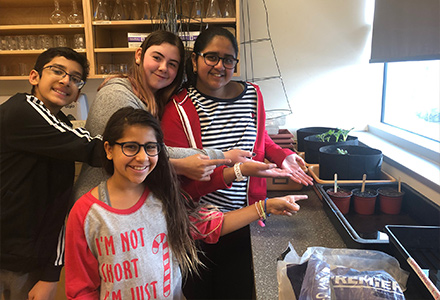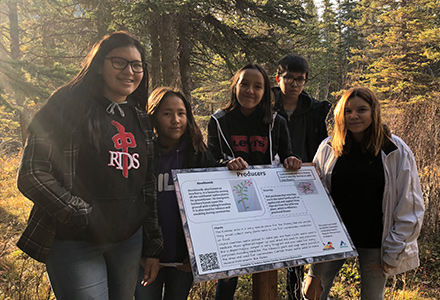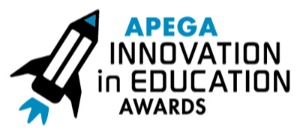APEGA Awards Get K-12 Students Electrified for STEM
 “Every career has a little bit of science in it, and I just want the kids to see science is really cool,” smiles Jenn O’Neill, a teacher at SouthPointe School in Fort Saskatchewan. O’Neill’s Grade 7 class was awarded
an APEGA Innovation in Education Award in 2019.
“Every career has a little bit of science in it, and I just want the kids to see science is really cool,” smiles Jenn O’Neill, a teacher at SouthPointe School in Fort Saskatchewan. O’Neill’s Grade 7 class was awarded
an APEGA Innovation in Education Award in 2019.
With the awards, APEGA is helping teachers create hands-on and engaging classroom experiences to foster a love of science, technology, engineering, and math (STEM) in their students.
On Aug. 22, 2022, applications open for the APEGA Innovation in Education Awards—up to $5,000 is awarded to classes from kindergarten to grade 12. The money enables Alberta educators to incorporate meaningful educational experiences for students, teaching them to leverage engineering and geoscience concepts to positively impact their community.
Hands-on engineering and geoscience
“As a regulator of engineering and geoscience in Alberta, APEGA is investing in equipping students with the skills, knowledge, and attitudes necessary for success in the future workforce,” explains Alissa Boyle, APEGA outreach manager.
Selected by a panel of APEGA staff and professional members, recipients for the Innovation in Education Awards are chosen based on how well their project proposal meets the selection criteria.
Using the funding, students create a curriculum-centered project or prototype focused on engineering or geoscience that meets a need or solves a problem for their community. The full class participates and the project’s effect is measured to gauge its success.
Students work on projects throughout a semester or course during the school year, completing them between February and June.
Improving the community with STEM
 We want to support the next generation of professionals in the workforce. We want to help these students build creativity, innovation, and problem-solving skills,” explains Boyle.
We want to support the next generation of professionals in the workforce. We want to help these students build creativity, innovation, and problem-solving skills,” explains Boyle.
Past projects include programming a machine to automatically sort recyclable plastics from non-recyclable items, developing devices to help senior-centre residents with daily challenges, creating informative local trail signs about ecology, and building a wind turbine to power a phone charger.
“As a junior-high science teacher, I think STEM is super important because it takes what they’re learning from a textbook—the knowledge and information as a teacher I’m required to teach—and applies it in their everyday life,” asserts O’Neill.
Apply for APEGA’s Innovation in Education Awards today!
Update: APEGA's Innovation in Education Award as described in this article has been discontinued. Check out the Educators & Students page for a list of current programs.

